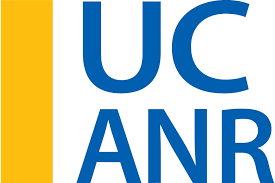
By Pam Kan-Rice, UCANR
Daniel Munk, UC Cooperative Extension farm advisor, retired from a 36-year career with UC Agriculture and Natural Resources on July 1.
“Dan has played a pivotal role in the success of cotton that has been grown in California, especially his work on drought-related growing conditions and how best for cotton to overcome those conditions and thrive,” said Roger Isom, president and CEO of California Cotton Ginner & Growers Association and Western Agricultural Processors Association in Fresno.
“And while I know he has been involved most recently in reduced tillage research, it is his irrigation work that he will be remembered for,” Isom said. “Dan put on numerous irrigation workshops and grower meetings over the years, and he was the cotton industry’s ‘go to guy’ on deficit irrigation and related topics.”
As a youngster, the Bay Area native was interested in the natural sciences so he earned a B.S. in soil and water science and an M.S. in soil science from UC Davis.
“I never had an idea of becoming a farm advisor until I worked with Donald Grimes,” Munk said. In 1986, Munk took a job assisting the now UC emeritus water scientist with research on water penetration problems. It was while working with Grimes at Kearney Agricultural Research and Extension Center south of Fresno, Munk said, “I got an understanding of the importance of agriculture.”
In 1990, he became a UC Cooperative Extension farm advisor in Fresno County.
“Dan has been helpful,” said John Diener, a Five Points farmer who began working with Munk in the 1990s. “If I needed anything, he was helpful, bringing information like for lygus bug or diseases or new varieties.”
To solve a salinity problem, Diener consulted Munk. “Dan was an irrigation guy and worked with USDA ARS and NRCS. This was bigger than what a local farmer can do,” Diener said, adding that Munk brought UC technical knowledge and resources from USDA Agricultural Research Service and USDA Natural Resources Conservation Service to the West Side of Fresno County to build a tile system for managing the salinity in drainage water. “It took a whole group of people to make it happen,” Diener said.
When Munk joined UC Cooperative Extension, California was growing over 1 million acres of cotton, mostly Acala varieties. During the state’s six years of drought spanning the 1980s and 1990s, growers began planting the higher priced extra-long staple Pima cotton varieties instead of Upland cotton types.
In response, Munk began studying ways to improve irrigation management for Pima cotton. He and colleagues also studied plant growth regulators and found that by treating vigorously growing Pima cotton plants with plant growth regulators following first bloom, cotton yields improved by 60 to 120 pounds per acre, which translated to a $50 to $100 per-acre increase in crop value, with higher cotton quality and fewer problems with defoliation.
As water became increasingly limited in California, the state’s cotton acreage plummeted and Munk turned his research to producing crops with less water using reduced tillage systems. In one study, he and his research collaborators found that they could improve water use efficiency by 37% by growing cotton in wheat residue versus conventional tillage. In other research, Munk and colleagues showed that reduced till cotton systems could reduce fuel use by more than 70%, increase soil carbon by more than 20%, and reduce dust emissions by more than 60%, relative to conventional till approaches. Another of Munk’s projects suggests that garbanzos and sorghum can be grown under no-till practices in the San Joaquin Valley without loss of yield.
“He has also been helpful in issues related to nitrogen uptake and air and water quality,” Isom said.
Because of Munk’s expertise in nutrient and water management practices, he was asked to serve on the state’s Agricultural Expert Panel in 2014 to assess agricultural nitrate control programs. They developed recommendations for the State Water Resources Control Board to protect groundwater.
One of the recommendations was to develop a comprehensive and sustained educational and outreach program. As a result, the California Department of Food and Agriculture and UC California Institute for Water Resources created the Irrigation and Nitrogen Management Training Program, for which Munk helped develop curriculum and train growers and farm consultants on best farm practices for nitrogen and water management. Leading the program’s southern San Joaquin Valley courses, he helped certify more than 300 growers, consultants and farm advisors in protecting groundwater.
“I hope these more recent programs will have lasting impacts on farm economic viability and improved groundwater quality,” Munk said.
The farm advisor also extended his irrigation knowledge beyond farms. Working with fellow UCCE advisors and specialists, Munk conducted hands-on training for school landscape staff in 2012-2013. The staff learned how to measure irrigation output, sample soil and manage water to avoid runoff and improve water quality.
“He has had a huge impact, and his work will remain instrumental in the cotton industry’s survival in California as we deal with ongoing drought issues,” Isom said. “His departure will leave an empty spot in the cotton world today without a doubt!”








